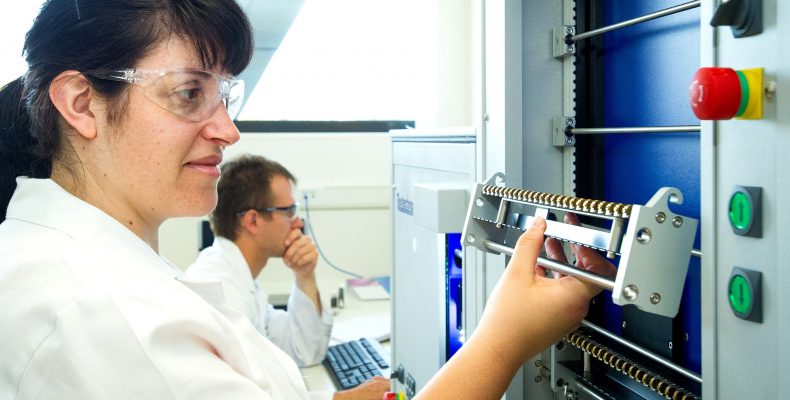The Advanced Fibre Cluster Geelong (AFCG) is spearheading the drive to ready Australia’s workforce for a high tech future on the world stage.
The AFCG recently carried out targeted deep-dive interviews with Cluster members, seeking their input in order to better understand future workforce development needs at leading advanced manufacturing organisations.
The initiative, detailed in a new “Developing a world-class workforce, Advanced Fibre Cluster: Towards 2025” report, AFCG set out to gain a deeper understanding of members’ current skills and training needs in order to build local capability and drive the AFCG vision for the region to be a global centre of excellence.
The Gordon TAFE, together with Skilling the Bay, were engaged to support the work.
Interview questions were designed to gain an understanding of the workforce composition of Cluster members and their common and distinct needs going forward as they accelerate industry growth in the field of composites and advanced manufacturing technology.
Advanced manufacturing in Australia is facing significant challenges due to skills gaps and shortages, particularly with the adoption of new technologies and processes, driven by the advent of Industry 4.0, increasing the level of digitalisation and automation across the sector.
The most common job roles across member organisations are engineers (mechanical, manufacturing, automotive, aerospace, electrical and industrial), operators, trades (metal fabrication, electricians, machinists, fitters and turners), laboratory and test technicians, logistics and supply chain, team leaders, supervisors and managers, PhD researchers and interns.
The more difficult to fill roles include materials and processing engineers, quality engineers and quality assurance staff, mechatronic engineers, industrial designers, NDT (non-destructive test) technicians and PMM (Precision Milling Machine) operators.
The survey found:
- The organisations typically operate in a high precision environment and utilise a workforce comprised of highly qualified researchers, engineers, and trained industry specialists.
- Workforces are typically male-dominated, however, all organisations expressed a desire to increase diversity
- Most organisations operate 24hrs, with various shift patterns in order to meet client demand and service overseas markets.
- Each organisation incorporated research and development activities.
- Organisations currently operate using a mix of manual and automated processes. All expressed a desire to increase the use of automation, robotics and better utilise the internet of things (IoT) to increase productivity.
- All organisations were cognizant of the need to create and foster a positive workplace culture and placed an emphasis on finding employees with the ‘right fit’.
Specialist skill needs common across the Cluster, include automation, chemical, process and industrial engineers, as well as mechanical engineers specializing in composites and material machinists.
Further in-demand skills, for fewer job roles, include engineers with automotive and aerospace experience, workers with international trade experience, non-destructive testing (NDT) experience, robotics and (computer) programming capability and spray painters with experience in specialised paint materials.
Training and development needs were most likely to be met by internal training program and learning and development in most organisations began with an intensive induction program for new employees.
Feedback indicated industry should take a lead role in addressing skills gaps in advanced manufacturing, engaging the community and forming partnerships with the education sector.
Recommendations stemming from the survey included:
- Create partnerships with schools, TAFE and Universities to develop and promote entry pathways for senior secondary students to the sector.
- Collaborate with education providers and government to develop a set of Cluster endorsed (or approved) micro-credentials that build skills in identified areas of need; improving access to upskilling.
- Develop a Cluster-specific apprenticeship model to open up pathways into the sector and increase the number of apprentices undertaking engineering with a composites focus.
- Develop innovative and alternative training pathways to support the inclusion of under-represented groups, such as women and new migrants, into the sector.
- Create prescribed pathways for mature aged/existing workers from sectors of synergy with advanced fibre product manufacture.
- The Cluster takes ownership of the development of long-term strategies to build capability and capacity amongst member organisations leading to increased productivity, quality and innovation.
- Advocate for government funding skills sets and micro-credentials to adequately support workforce development.
The AFCG analysis was prepared by Dr Yasmin Chalmers, Head of Centre, Science and Technology at The Gordon, and Carley Brennan, Skilling the Bay Manager. Cluster member, The Gordon, is Victoria’s largest regional stand-alone TAFE and has been helping people gain real skills for real jobs for over 125 years.
View the full training and skills report here.
May 2020
